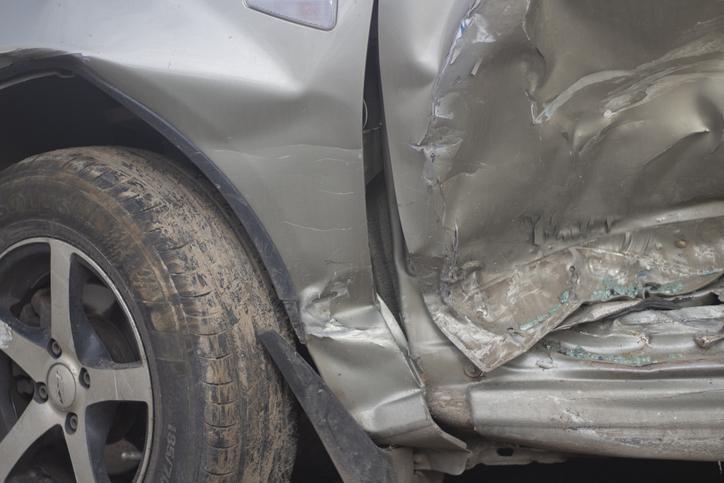

(844) - 444-4444

Just as someone can’t tell right away how seriously they were hurt in a car crash, occasionally it’s hard to know how extensively your vehicle was damaged. Without your even realizing it, the car might have been “totaled” when that SUV ran a stop sign and T-boned you.
So, how can you tell whether a car was “totaled”? You can’t necessarily go by how hurt you are; vehicle damage isn’t always commensurate with driver injury. You can’t even go by how the car looks. Some damage, such as that to the vehicle’s frame, can be hard to see.
Sure, there are some potential signs that your vehicle may be a total loss. These include:
A car’s frame may be damaged in any of several ways, from minor to crushed, the latter of which often results from a direct front- or rear-end collision where the crumple zones absorb some of the impact.
But determining for certain whether your car has been totaled is a math problem, not a guessing game. The insurance company considers whether the cost of repair exceeds the cost of replacement. This requires consideration of the full “value” of the vehicle based on its year, mileage, and condition. Generally speaking, if the cost of repair exceeds a certain percentage of this “value,” an insurance company probably would probably consider it a total loss and choose to pay its full value as a used car rather than invest in repairing it.
This is, of course, a rough approximation of how the process normally plays out. Insurance companies likely use various formulas and algorithms to perform the analysis, but the bottom line is that whether or not a vehicle is deemed totaled is a function of its fair market value and the “total loss” threshold in a given state. New York, for example, has a total loss threshold of 75%.
It is important to know that a claim for property damage differs from a claim for pain and suffering. These are two separate claims. While some insurance companies sometimes try to argue that personal injuries are out of proportion with the crash, which was just a “minor fender bender,” that overlooks that the principal purpose of a car bumper is to protect the vehicle from damage, not eliminate or mitigate the injuries of car occupants.
Things aren’t always so cut-and-dried from the accident victim’s point of view; how much someone ends up getting from the insurance company isn’t necessarily how much they will have in pocket when looking to buy a replacement vehicle. It depends on whether the person owned the vehicle outright or was still making payments on it.
For example, as a potential hypothetical:
If you the person does not owe anything on the car, and
But if the person still owed $9,000 on the car, the $4,000 received from the insurance company would be spoken for, leaving the injured person with continued car payments but no car to drive. There is, fortunately, a solution to this. Optional GAP insurance can bridge the gap and help pay off loans on “totaled” cars. Such insurance, which must be purchased and in place before the crash, covers the difference between the value of the car and the balance on the loan.
Insurance policies typically cover the depreciated value of a car, or the market value at the time of the accident claim, not the balance of the loan.
As previously noted, someone involved in a New York car crash can be eligible to file different insurance claims. These include, but are not limited to, claims for
Have you ever wondered if someone can keep a car after it’s deemed “totaled”?
Someone looking to do so will likely need to navigate a lot of red tape to get the car fixed, insured, and back on the road.
Under New York Law, a vehicle that was previously deemed “totaled” because its cost of repair exceeded 75 percent of the retail value of the vehicle must always “bear the brand ‘REBUILT SALVAGE’ and the abbreviation ‘NY’ if the vehicle is eight model years old or newer on the date of loss and titled in New York.” This “brand” will remain on the vehicle’s title until it is finally salvaged.
Someone who chooses to keep, but not drive, a “totaled” vehicle always has the option to use car parts or sell them for cash in compliance with applicable laws. Every situation is unique.
Things aren’t always what they seem for you or your automobile immediately after a traffic accident on New York roads. Regardless of whether your car appears totaled, you may have been injured. If so, we can help. At William Mattar, P.C. our personal-injury attorneys can help you receive maximum compensation for pain and suffering after a crash on New York roads. Fill out the form on our website to schedule a free initial consultation or call 844-444-4444 to speak to a team member. We are available 24/7 to take your call.





